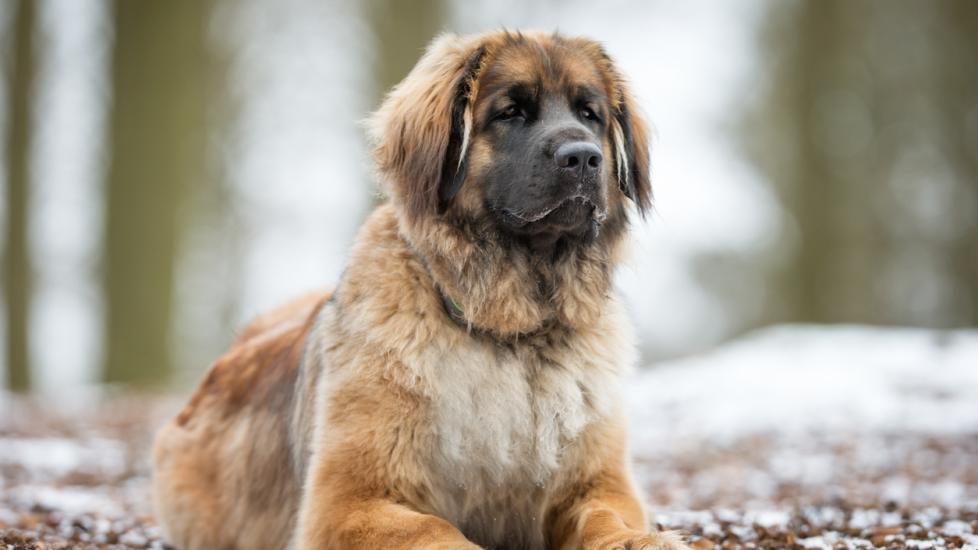Breed Introduction: The Leonberger is a large, powerful breed that originated in Germany during the mid-19th century. It was developed as a working dog with an ancestry that includes the Saint Bernard, Newfoundland, and other now extinct local dogs. These dogs were known for their strength and used for pulling carts and rescue work due to their ability to swim and carry heavy loads over difficult terrain. Today, they are popular family pets known for their friendly nature and protective instincts.
Lifespan: 8 – 10 years
Coat Length: Long
Alias(es): Leo
Height: Males typically stand between 28-31 inches (71-79 cm) at the withers; females tend to be slightly smaller, standing around 25-28 inches (64-71 cm).
Place of Origin: Germany
Body Size: Large/Giant Breed
Shedding Level: Moderate Shedder
Trainability: Intelligent and eager to please, the Leonberger responds well to positive reinforcement training methods such as praise, treats, and consistency. They do best with patient handlers who can establish themselves as calm pack leaders. Early socialization and obedience training are essential to ensure these dogs grow up to be well-mannered companions.
Key Characteristics: The Leonberger is characterized by its lion-like appearance with a muscular build, strong bones, and a distinctive black mask on its face. Its long, thick coat comes in different shades of brown, ranging from light to dark, often with some white markings. Their tails are bushy, and they have webbed feet which help them navigate water bodies.
Temperament: Known for being gentle giants, Leonbergers are loyal, affectionate, and good with children. They form deep bonds within their families but may be wary of strangers until properly socialized. Due to their protective instinct, early socialization and consistent training are crucial to prevent overly assertive behavior towards unfamiliar people or animals.
Health Considerations: As a giant breed, Leonbergers are prone to certain health issues common among larger dogs, including hip dysplasia, elbow dysplasia, eye problems like progressive retinal atrophy (PRA), gastric torsion (bloat), von Willebrand disease (a bleeding disorder), and skin allergies. Regular veterinary check-ups and appropriate preventative measures should be taken to maintain the health of your Leonberger.
Exercise Needs: This active breed requires regular physical activity and mental stimulation. Daily walks and play sessions are necessary to keep them fit and happy. They enjoy swimming and activities where they can use their natural abilities to pull or carry things, so activities involving these elements can be beneficial.
Space Requirements: Given their size, Leonbergers need ample space to live comfortably. A house with a fenced yard is ideal, as they can become destructive if left alone without adequate exercise and attention.
Grooming: Their long coats require frequent brushing to prevent matting and to remove loose hair. Bathing is usually needed only when they get dirty or smelly. Trimming excess hair around the paw pads and sanitary areas might also be necessary.
Suitable Owner/Living Situation: Owners must be prepared for the significant responsibility of providing proper care for a large dog, including financial commitment for food, vet bills, and potentially costly treatments associated with hereditary conditions. Time spent exercising, grooming, and socializing the dog is equally important. Families with spacious living situations and the time to dedicate to this breed will find the Leonberger to be a loving companion.
